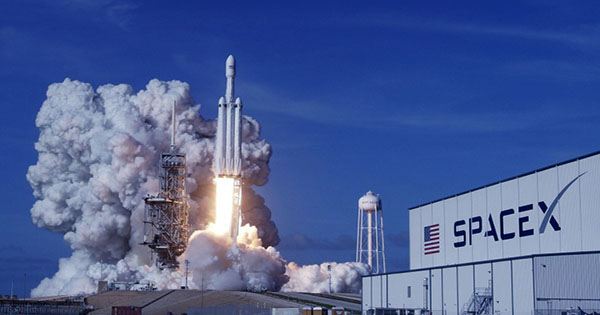The COVID-19 pandemic’s repercussions are still being felt in the most improbable of places: spaceflight. Due to pandemic-related shortages of liquid oxygen (LOX), NASA unexpectedly grounded a September satellite launch on Friday, and there may be more launch delays to follow.
With the Delta variant, demand for oxygen has only increased, pushing hospitalization and ICU admission rates back to where they were at the outset of the epidemic in many places.
However, oxygen is used in more than simply ventilators. LOX is used as an oxidizer in rocket fuel by the space industry, frequently in conjunction with other gases such as liquid hydrogen. (The hydrogen reacting with the oxygen to generate water is why there can be so much steam during a launch.)
The Landsat 9 satellite will now be launched on September 23, according to NASA and United Launch Alliance, a joint venture between Boeing and Lockheed Martin.
ULA isn’t the only launch business that could be affected by the LOX scarcity. During a session at the Space Symposium last week, SpaceX President Gwynne Shotwell remarked, “We’re actually going to be impacted this year due to the unavailability of liquid oxygen for launch.” “We will surely ensure that the hospitals have the oxygen they require, but if anyone has liquid oxygen to spare, please shoot me an email.” Elon Musk, SpaceX’s founder and CEO, was more measured on Twitter a few days later, stating the LOX scarcity “is a worry, but not yet a limiting factor.”
Beyond the actual supply of oxygen, the gas scarcity is being exacerbated by significant shipping delays as the supply chain continues to be disrupted by the coronavirus. On Twitter, ULA CEO Tory Bruno said that a contractor who transports nitrogen to the Vandenberg Space Force Base in California was redirected to help with the LOX delivery in Florida. The LOX shortage is having an impact on more than just the space industry: Orlando, Florida officials issued a separate alert shortly before NASA announced the launch delay, encouraging citizens to conserve water because LOX is used to clean the city’s water supply.
“Nationally, the demand for liquid oxygen is extraordinarily high because the priority for its use is to save lives,” Orlando Mayor Buddy Dyer stated on Facebook. “If we don’t minimize the amount of water we need to treat right now, it could have an impact on our water quality.”
COVID-19 was dubbed a “wake-up call” for ensuring an appropriate supply of oxygen to hospitals by the non-profit Center for Global Development as early as May of last year.
















